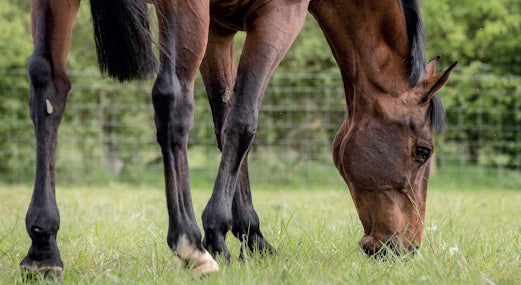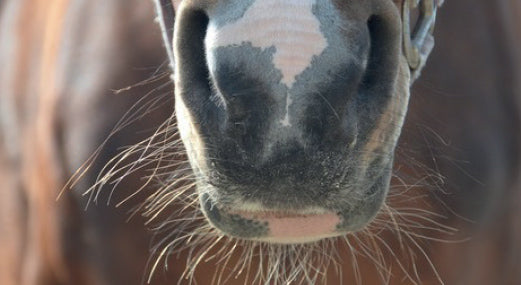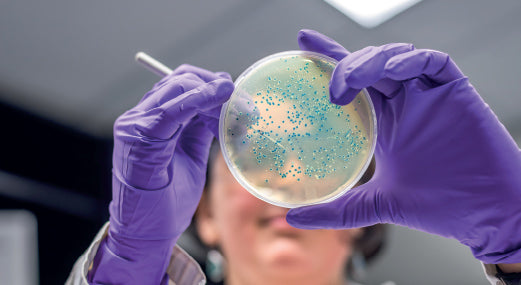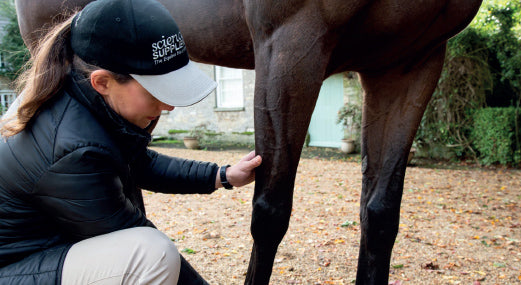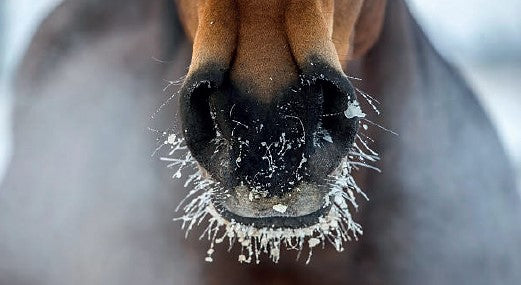Condition
Does withholding forage feed affect the faecal bacterial microbiota in healthy horses?
Changes in faecal bacteria populations are associated with gastrointestinal disease in a range of species. Horses presenting with colic have been shown to have a decreased diversity and species richness of faecal and ...
Read More
Does Light Therapy Aid Wound healing?
Light‐emitting diodes (LEDs) are commonly used for treating a variety of disorders in horses, including wounds. Despite anecdotal claims that these LEDs shorten healing times, there is a lack of scientific evaluation ...
Read More
Is obesity linked to low grade systemic inflammation in horses?
It is well recognised that human obesity is linked with systemic inflammation and predisposes the individual to multiple diseases. However, it is unproven if obese equines also produce more inflammatory mediators and ...
Read More
How to tell if your horse is in pain from dental disorders
Dental problems can cause significant discomfort and pain in horses. Sadly, many horses do not demonstrate obvious clinical signs of dental pain leading to delayed diagnosis and treatment which could impact welfare an...
Read More
Thoroughbred use, health and owner satisfaction following retirement from racing
Each year a great many Thoroughbred racehorses retire and are rehomed for alternative careers unrelated to racing. Whilst studies investigating racehorse health are frequent, there are few regarding the health of Thor...
Read More
Accuracy of diagnostic tests for detection of strangles carriers
Strangles, infection of the upper respiratory tract with Strep equi var. equi, is common in the equine population. A subclinical ‘carrier’ status exists in which residual bacteria persist, usually in the guttural pouc...
Read More
Is an Annual Booster Sufficient to Protect my Horse from Equine Influenza?
As we all found out last year, equine influenza (EI) is a highly contagious respiratory disease. Mandatory vaccination for Thoroughbred racehorses has been implemented in the UK and Ireland for nearly 40 years. Vaccin...
Read More
Scoring system finds lameness in horses considered sound by their owners
Low grade lameness in ridden horses is more common than recognised by owners. A previous UK study of 506 sports horses in full work and presumed to be non‐lame found that 47% were lame or had other pain‐related gait a...
Read More
Would you like ice with that? Whole-body cryotherapy for horses!
The application of ice or snow or very cold water or packs containing cooling gels which have been cooled in freezers to relieve inflammation, pain and swelling is a commonly used first-aid technique for both people a...
Read More
Feeding chromium increases insulin sensitivity in horses
Insulin insensitivity or insulin resistance is a common feature of both equine Cushing’s disease (Pituitary pars intermedia dysfunction – PPID) and equine metabolic syndrome (EMS). Insulin insensitivity leads to a num...
Read More
Does Conditioning Equine Athletes on Water Treadmills Improve Fitness?
Equine water treadmills were initially designed for rehabilitation of musculoskeletal injuries but are now also widely used for conditioning sport horses. High-intensity exercise is important in improving fitness in h...
Read More


